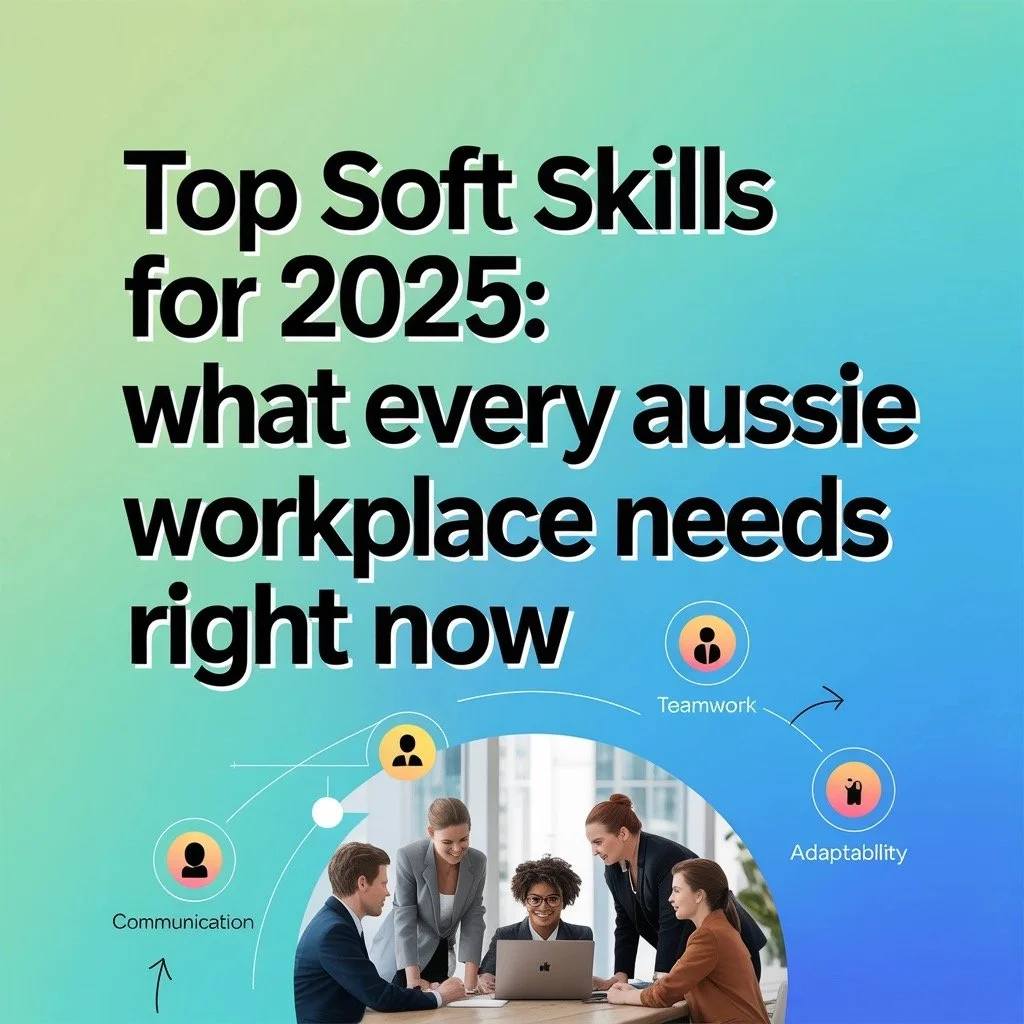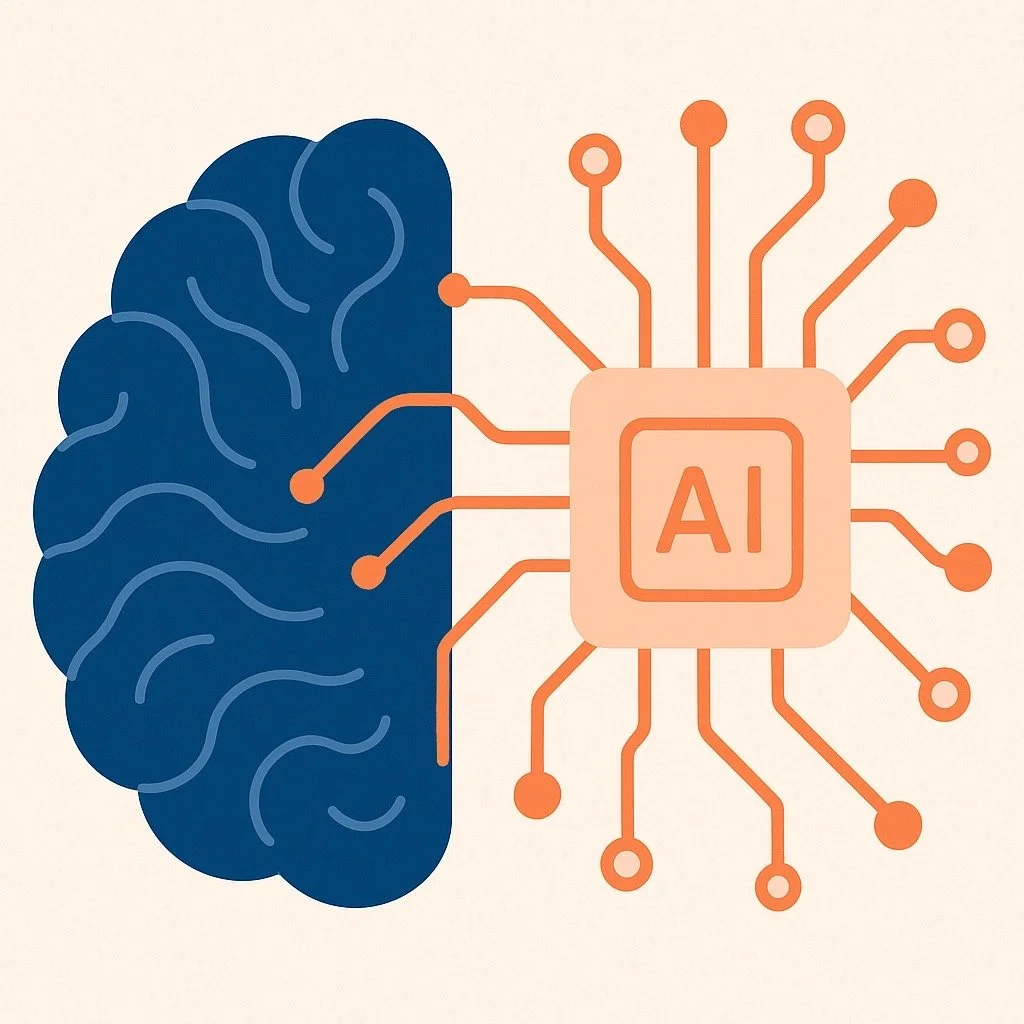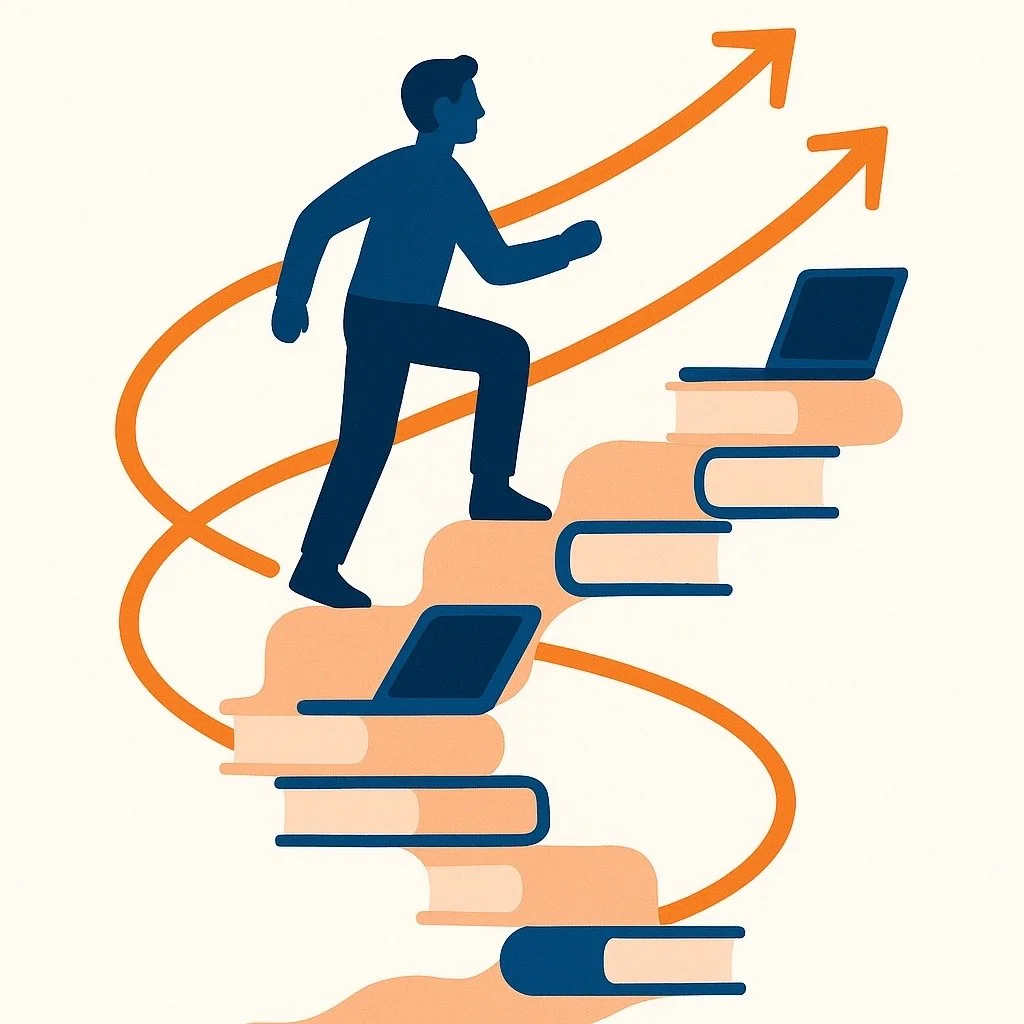Top Soft Skills for 2025: What Every Aussie Workplace Needs Right Now
The New Currency in Australian Workplaces
Remember when having technical skills was enough to land and keep a great job? Those days are long gone. As we move deeper into 2025, Australian workplaces are transforming at lightning speed. AI handles routine tasks, teams collaborate across continents, and five generations now work side by side. In this landscape, soft skills have become the new workplace currency.
At Chatterbox Workshops, we've watched this evolution accelerate over the past few years. Our clients consistently report that while technical capabilities get candidates through the door, it's soft skills that determine who thrives, who leads, and who gets promoted.
So what exactly are the must-have soft skills for Australian professionals right now? Let's break down the capabilities that will set you apart in today's workplace.
1. Emotional Intelligence: The Foundation Skill
If there's one skill that underpins all others, it's emotional intelligence (EQ). The ability to understand and manage your own emotions while effectively navigating others' feelings has become non-negotiable in modern workplaces.
High EQ professionals can:
Deliver tough feedback without demotivating teammates
Navigate conflict constructively
Build genuine connections across different personality types
Stay composed during high-stress situations
Read the room (physical or virtual) accurately
"When we surveyed 500 Australian business leaders about their hiring priorities, 83% ranked emotional intelligence as either 'very important' or 'essential' for leadership roles," says Dr. Mira Patel, workplace psychologist. "That's a massive shift from just five years ago."
The good news? Unlike IQ, emotional intelligence can be developed with practice. Simple habits like pausing before reacting, actively seeking feedback, and practicing reflective listening can significantly boost your EQ over time.
2. Adaptive Thinking: Thriving Amid Uncertainty
If the past few years have taught us anything, it's that change is the only constant. The ability to pivot quickly, embrace new workflows, and maintain productivity despite uncertainty has become invaluable.
Adaptive thinking involves:
Questioning assumptions rather than clinging to "how things have always been done"
Recovering quickly from setbacks
Finding opportunities within challenges
Adjusting communication styles for different audiences
Embracing technological changes without resistance
"In interviews, we're increasingly presenting candidates with hypothetical scenarios involving unexpected changes," shares Liam Johnson, HR Director at a major Australian retailer. "We're less interested in perfect answers and more focused on their thought process and comfort with ambiguity."
Real-world example: When a Melbourne marketing agency suddenly lost their largest client in 2024, they didn't panic. Instead, they repurposed their team's expertise to launch a new service line targeting an emerging market segment. Within six months, they'd replaced the lost revenue and diversified their client base—all because they had cultivated adaptive thinking as a team.
3. Digital Collaboration: Beyond Basic Tech Skills
With hybrid and remote work firmly established in the Australian workplace landscape, the ability to collaborate effectively in digital environments has transformed from a nice-to-have to an essential skill.
Digital collaboration encompasses:
Facilitating engaging virtual meetings
Asynchronous communication excellence
Thoughtful digital body language
Creating psychological safety in online environments
Balancing connection and productivity across platforms
"The most successful teams we work with don't just use digital tools—they've developed nuanced norms around how they collaborate virtually," explains workforce consultant James Chen. "They know when to use chat versus email versus video, and they're intentional about maintaining relationships despite distance."
Many professionals mistakenly believe they've mastered digital collaboration because they can navigate Zoom or Teams. The reality is far more complex, involving emotional intelligence, cultural awareness, and communication skills adapted for digital environments.
4. Critical Thinking in the Age of AI
With AI handling increasingly complex analytical tasks, human critical thinking has paradoxically become more valuable than ever. Australian employers are seeking professionals who can:
Distinguish between correlation and causation
Identify bias in data and recommendations
Ask penetrating questions that AI wouldn't consider
Synthesize information from diverse sources
Apply ethical frameworks to complex decisions
"AI gives us more information faster than ever before," notes education technology researcher Dr. Priya Sharma. "But human judgment about what that information means and how to apply it ethically is still irreplaceable."
A standout example comes from a Brisbane healthcare provider that implemented an AI diagnostic tool in 2024. While the tool dramatically improved efficiency, it was the clinicians with strong critical thinking skills who identified edge cases where the AI recommendations required human override, ultimately improving patient outcomes.
5. Cross-Cultural Fluency: Navigating Diverse Teams
Australia's workforce is among the most diverse globally, and that trend continues to strengthen. Beyond basic cultural sensitivity, today's professionals need genuine cross-cultural fluency.
This involves:
Recognizing how cultural background influences communication styles
Adapting leadership approaches for multicultural teams
Creating inclusive environments where diverse perspectives thrive
Understanding global business etiquette
Recognizing and mitigating unconscious bias
"We've seen projects fail not because of technical issues, but because team members lacked cross-cultural fluency," reports diversity consultant Maya Williams. "Something as simple as different attitudes toward hierarchy or direct versus indirect communication can derail collaboration if not properly understood."
Developing this skill requires curiosity, humility, and practice. Seek opportunities to work on diverse teams, read widely about different cultural perspectives, and be willing to make mistakes and learn from them.
6. Storytelling: Making Complex Ideas Accessible
In a world drowning in information, the ability to craft compelling narratives that simplify complex concepts has become invaluable. Whether you're pitching to clients, presenting to executives, or onboarding new team members, storytelling helps information stick.
Effective workplace storytelling:
Transforms data into meaningful insights
Creates emotional connection to ideas or initiatives
Simplifies complex concepts without oversimplification
Drives behavioral change more effectively than facts alone
Makes your contributions visible within the organization
"When we analyze high performers across industries, we consistently find strong storytelling abilities," says executive coach Thomas Nguyen. "These professionals can translate technical achievements into business impact stories that resonate with decision-makers."
This skill proves particularly valuable when communicating across specialties. The software engineer who can explain technical constraints to non-technical stakeholders, or the finance professional who can make budget projections engaging, creates disproportionate value.
7. Self-Directed Learning: The Meta-Skill
Perhaps the most important skill of all is the ability to continuously upskill yourself. With the half-life of professional skills shrinking, professionals who can identify skill gaps and address them proactively have a significant advantage.
Self-directed learners:
Regularly audit their skill set against emerging workplace needs
Create personal learning plans rather than waiting for employer training
Learn efficiently through various methods (courses, mentorship, practice)
Apply new knowledge immediately through practical projects
Share learning with colleagues, creating multiplier effects
"The question in interviews used to be 'What skills do you have?'" observes career strategist Eleanor Price. "Now it's increasingly 'How do you continuously develop new skills?' The process has become as important as the current snapshot."
Putting It All Together: Your Soft Skills Development Plan
Building these skills doesn't happen overnight, but with consistent effort, you'll see significant improvement. Here's a simple framework to get started:
Assessment: Rate yourself honestly on each skill above. Better yet, ask for feedback from colleagues who will be candid.
Prioritization: Choose 1-2 skills to focus on first, ideally those that would create the most immediate impact in your current role.
Learning: Identify resources to help develop these skills. This might include books, courses, mentors, or practice opportunities.
Application: Create specific situations to practice your chosen skills. Volunteer for projects that stretch you in these areas.
Reflection: Schedule regular check-ins with yourself to assess progress and adjust your approach as needed.
Remember that soft skills development is rarely linear. You'll have breakthroughs and backslides. The key is consistency and self-compassion throughout the process.
The Competitive Edge That Lasts
While technical skills will always matter, they increasingly have a shorter shelf life. The soft skills we've explored provide a durable competitive advantage that transcends industry changes, technological disruption, and economic cycles.
"When we look at professionals who have navigated multiple career transitions successfully, the common denominator is strong soft skills," confirms Alison Baxter, a talent acquisition leader with 20+ years of experience. "These capabilities create career resilience that technical expertise alone simply cannot."
As you navigate your professional journey through 2025 and beyond, investing in these human capabilities will yield returns far beyond your current role. They'll help you build meaningful connections, solve wicked problems, and create value in ways that even the most advanced AI cannot replicate.
Which soft skill will you develop next?
Chatterbox Workshops offers tailored training programs focused on building the essential soft skills discussed in this article. Contact us to learn how we can help your team develop these capabilities.




